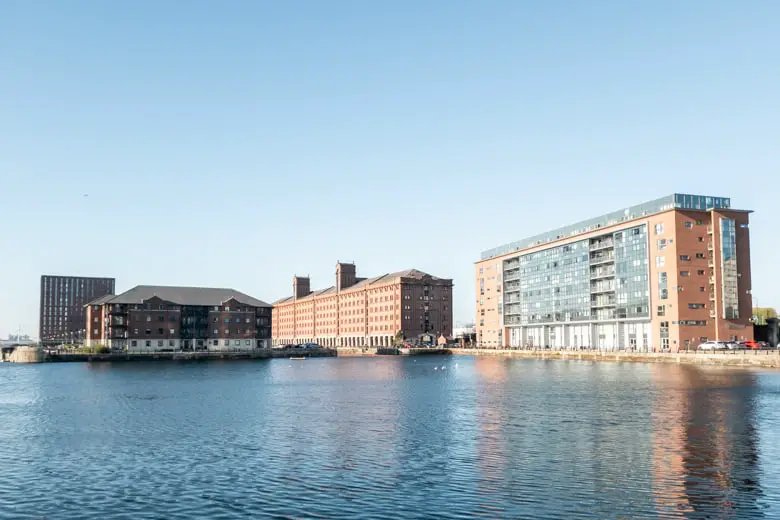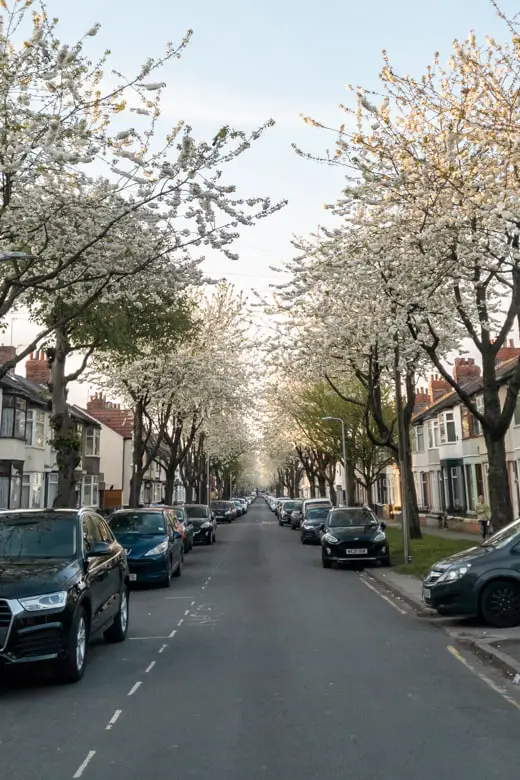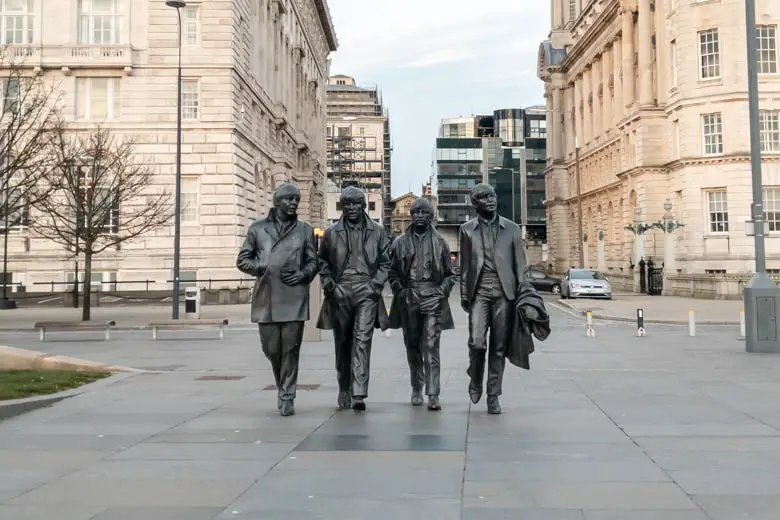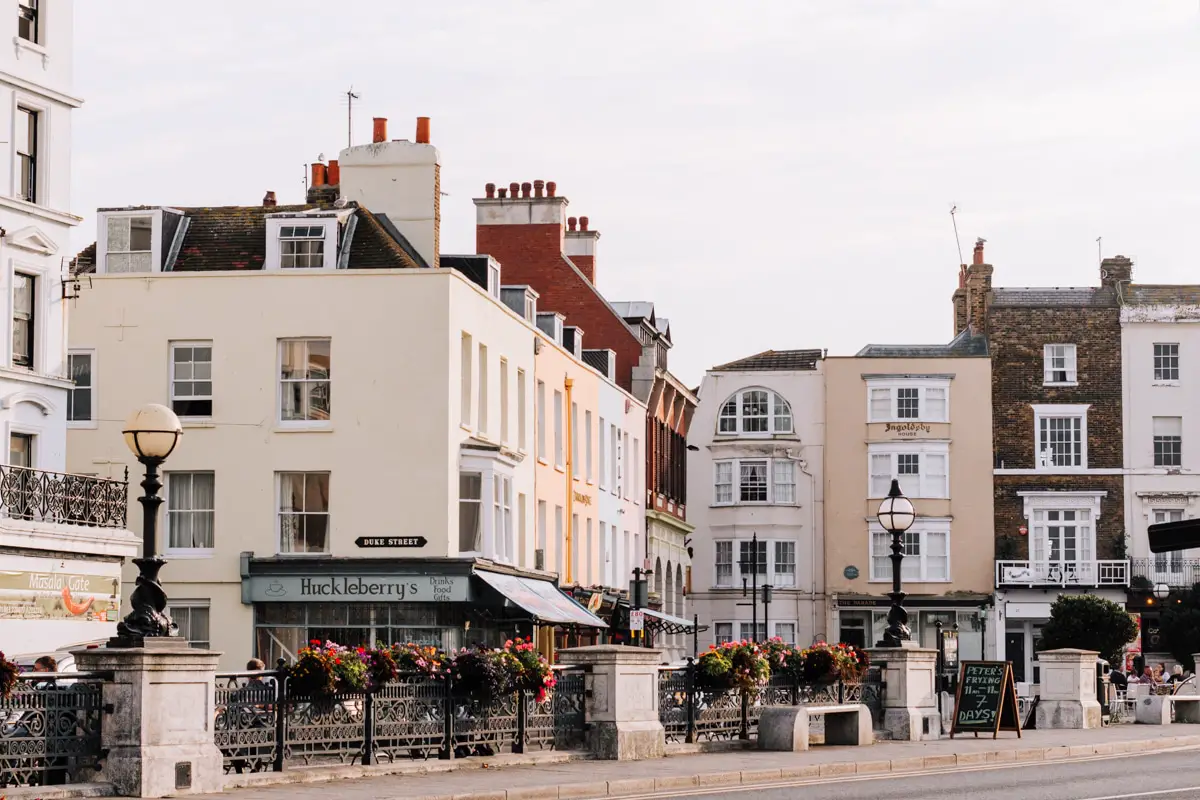2021 Cost of living in Liverpool (by a local)
Some of the links in this post are affiliate links which means I earn a small commission if you purchase or book through my link, at no extra cost to you.
In 2021, cost of living in Liverpool is still significantly lower than in other big cities across the UK, including London, Manchester, Birmingham or even Cambridge. Life here is 20.31% less expensive than in the capital, while rent is 64% lower! According to Numbeo, the cost of living in Liverpool for a single person is £640.34 on average (without rent). It’s possible to spend as little as £300 per person and live a decent life. It makes Liverpool one of the best cities to live in, if you want to spend as little money as possible and still live in a big city with lots of possibilities and things to do.
Navigate to where you want to go:
Cost of living in Liverpool

Rent a flat
Based on data from Home.co.uk, the average rent in Liverpool is £768 per month, while the median sits lower, at £624 per month. This is what’s winding the cost of living in Liverpool down. If you’re moving from London, remember one thing – average salary is also lower than in the capital, oscillating around £26,000 a year.
Cost of rent can vary, depending on the area you’re looking at, with north side being usually cheaper than the south side. As of July 2021, rent ranges from £281 a month for a studio flat to £6,500 for a 5-bedroom detached house with a 1136 results on Zoopla. Everyone can find something they’ll love.
Rent a room
It’s very common to live in shared accommodation, especially if you’re a student, a seasonal worker or if you’re moving from abroad. You can easily find a room to rent for as low as £200 a month. Prices go up to £600 a month, which is not that bad if you compare it to London, for example. All bills are included and there’s little to no paperwork required to do. Sometimes you can move in even on the next day!
Check out SpareRoom where you can
- Find a room to rent,
- Post an ad saying that you’re looking for a place, or
- Find people looking for a room who would also be interested in forming a group and searching for an entire home to rent.
The other two websites I’d recommend are Zoopla and OpenRent. Both of them offer rooms and homes to rent, while the latter one is aimed at private landlords and tenants only.
Tenant’s Insurance
Tenant’s Insurance, sometimes also called Renters Insurance, is an insurance targeted for tenants who are renting a property. It isn’t obligatory by law, but some letting agencies and landlords might require getting one.
There are two types of tenant insurance:
- Tenancy Liability that covers accidental damage to the items provided by the landlord, and
- Contents Insurance that covers your personal items in case of fire, theft, and accidental damage.
It doesn’t matter if you rent or own a house, you should always get Content Insurance. Price depends on the area you live in and value of things you want to insure. You can find insurance for as little as £5 a month, which is very affordable. Some insurance companies offer yearly payment plans instead of monthly. It’s usually cheaper (Homelet gives £2 per month discount in yearly plan, for example), and that’s what I usually choose.

Council Tax
Council Tax is an obligatory fee that goes to your city’s council. It goes into funding services that the council provides for citizens. The amount you need to pay is calculated based on your Council Tax band (determined by the value of your home), how much your local council charges for that band and your eligibility for a discount.
You can choose to pay in 10 or 12 instalments, or yearly. I personally prefer to pay in 12 instalments as it’s easier to budget when you have a set amount that is taken from your account every month.
Apparently, most people go for 10 installments instead. Here, monthly payments are higher to cover for February and March, when you don’t have to pay. It doesn’t make too much sense for me, but I get that some people prefer extra cash during those two months.
Gas and electricity
In Liverpool, as anywhere else in the country to be fair, you can find homes with only electricity, or a combination of electricity and gas. If you’re looking for a home to rent, I would recommend you getting one with the dual fuel because bills are cheaper – electric heating is a nightmare. Expensive nightmare I may add.
Many houses have pre-pay meters so you can’t just set up a Direct Debit and pay your bills this way. You have to take a key (or a card), go to the shop, top it up and put it back in the meter to have electricity at home. Imagine forgetting about this entire ordeal for a couple of days and have a gas cut off in the middle of cooking dinner because there’s no money left. Do I even have to tell you about the inconvenience of topping the key up at two in the morning?!
Pre-pay meters are more expensive than normal ones and it’s getting even worse when you consider that some shops charge additional fees for topping up the key. For the record, I pay around £100 per month on average for gas and electricity.
You can try to maneuver around it and find a cheaper gas and electricity supplier. Check out Uswitch and Go Compare to check your options.

Water
United Utilities is the only water supplier in Liverpool, so you can’t switch to a cheaper supplier even if you’d like to. I believe that’s the case in the entire country, but please let me know if I’m wrong.
Also, don’t celebrate if your house doesn’t have a water meter. It doesn’t mean that water is free and you don’t have to pay for it! In this scenario, you’ll have to pay a fixed price, that’s calculated based on one of three things:
- a flat rate charge,
- Assessed Volume Charge, or
- the rateable value of the property.
Internet
Broadband isn’t extortionately expensive and comes as a fixed price that depends on a speed you want to have. Many companies have special offers for new customers and you can pay lower prices for the first 12-18 months.
PRO TIP: If your discounted contract ends, and they don’t want to switch you to a cheaper plan, cancel it and start a new one with your partner’s/roommate’s name. They will be able to get all the deals targeted for new customers only.
Check what companies provide broadband to your address and choose the best deal. Sometimes you can get an extra SIM card that doesn’t cost you anything, but it’s full of goodies!
It’s silly, but often you might get a better deal if you choose a package with a landlineIt. You don’t have to have a phone connected to it, but it still saves you money. So, even if you want nothing else apart from broadband, check all available offers.
TV license
It’s a form of tax, required for everyone who wants to watch or record live TV programmes. You have to pay even if you don’t have a television and watch only one show from time to time on BBC iPlayer.
You don’t need to pay if you watch Netflix, Prime Video or anything like that. In this situation, though, I would recommend filling up the online declaration that you don’t need a TV license. If you don’t do that, they will harass you and bombard you with letters saying that the officer is on his way to check if you watch TV illegally.

Transportation
As with other expenses, the amount of money you’d spend on transportation varies based on your lifestyle and exact place you live in. Public transport is faster and more convenient than a car, which makes it the most popular way of getting around the city among people.
The best way of getting around the city is by train. Merseyrail connects Liverpool City Centre with nearby towns as far away as Southport, West Kirby, Chester or Speke. You won’t find anything faster and more reliable here.
Merseyside is divided into four areas, and with a whole variety of tickets available, travelling is affordable. You can choose between a single or return ticket, get a pass that will allow you to travel in your chosen zones and areas, or buy a ticket that will also cover all available ways of public transport, including buses and ferries.
If you own a car, you should know that you might need a resident’s permit if you want to park your car on the street outside your home. You’ll also have to apply for a visitor’s permit for any of your guests. You will need one especially if you’re moving to Everton, Anfield or Kirkdale – those districts are near the stadia, which lead them to be in the Football Match Residents Parking Zones.
Apart from inconvenience with parking permits, there’s another one – Mersey Tunnel tolls. There are four classes and each of them applies to different vehicles. If you plan on driving through the tunnel often, get a Fast Tag that will save you lots of money. If you’re driving a motorcycle, private/light goods vehicle or a car (Class 1), you need to have a Fast Tag AND be a Liverpool City Region resident to get a discount.

Groceries
Do you prefer organic food from local farmers, high end shopping in a well-known chain of supermarkets? Maybe you like thrifty shopping and looking for lower prices? The amount of money you spend on groceries may vary from month to month and won’t be the same for everyone.
There are many supermarkets for every budget, with Aldi, Lidl and Iceland being the cheapest ones, Asda, Jack’s, Morrison’s, Sainsbury’s and Tesco being somewhere in the middle, and Marks & Spencer and Waitrose being the most expensive and high-end stores.
For the sake of estimating your monthly grocery expenses, let’s look at my shopping. I shop in mid-range shops with Tesco & Jack’s as my favourites, followed by Sainsbury’s, Asda and local Polish shop. I spend anywhere between £350-£400 a month for a family of three, and it covers dinners for each day of the month, snacks, as well as basic personal care products, and household items like toilet paper, cleaning products and nappies. Monthly grocery expenses for one person would oscillate around £150 in this scenario. Although, if you don’t cook and prefer to dine out instead, the grocery bill will be significantly lower.
Healthcare
Even though healthcare is free (as in paid from our taxes but you don’t have to pay for a doctor’s visit), there are some fees that you can’t avoid.
If you need a prescription, you will need to pay £9.35 per item (data correct as of today, July 2021). This is a fixed price that goes up every year. In certain cases, you might be eligible for a free prescription.
It might come as a surprise, but NHS dentists aren’t free. They have three bonds with fixed prices that cover different treatments. For example, a quick check-up will cost you £23.80, but be prepared to pay £65.20 in case you need any fillings. You can check the price of each band and a full list of covered treatments here.

Activities in Liverpool
Liverpool is full of free and reasonably priced activities and things to do.
If you’d like to go to the cinema, you will have to pay around £13 for an adult ticket. All cinemas have very similar prices, for example, price difference between Everyman Cinema and Odeon is 10p a ticket.
While most museums are free in Liverpool, you need to pay for things like a visit to Liverpool Cathedral, The Beatles Story, taking a part in Liverpool Hop-on Hop-off Guided Walking Tour or Stadium Tour. Price will depend on the activities you choose, but prepare yourself to pay even £25-£50 per activity.
RELATED ARTICLE: Guide to Crosby Beach – nearest beach to Liverpool
Other expenses
There’s so much more things you might have to (or want) spend your money on. Clothes, gifts, dining out, gym membership, Netflix… The list goes on and on. Try to think about all your purchases from the last year and divided it by twelve. This should give you an estimate of how much you should budget for each month.
tl’dr – summary of monthly expenses in Liverpool
I know that this whole post was quite long and reading it all can give some of you a headache. Here’s a brief summary of average monthly expenses for one person and a working from home family of three.
| Expense | Average cost for one person (1 bed) | Average cost for a family (2/3 bed) |
|---|---|---|
| Rent | £550 | £600 |
| Tenant’s Insurance | £7 | £7 |
| Council Tax (Band A) | £89 | £118 |
| Gas & electricity | £60 | £100 |
| Water | £35 | £35 |
| Internet | £28 (108 Mbps) | £36 (213 KBPS w/ mobile SIM card) |
| Transport | £87.70 (Trio ticket) | £33.6 (Saveaway ticket once a week) |
| Groceries | £150 | £375 |
| Healthcare* | £6 | £12 |
| Other expenses (incl. activities) | £150 | £100 |
| Total | £1162.7 | £1416.6 |
Common questions about living in Liverpool

Is Liverpool a good place to live?
Liverpool is a good place to live, unless you’re a graduate looking for a job. It’s almost impossible to find an office job even if you have years of experience. And if you’re an immigrant, you might have a lot of trouble finding a job that’s not seasonal or through a recruitment agency.
Is it expensive to live in Liverpool?
Liverpool is cheap, especially rent-wise. It’s one reason people move here from cities like Manchester or London.
Is Liverpool rough?
Liverpool has the 21st highest crime rate in the country, with 266 crimes per 1,000 people. It’s much higher than the national average of 149, but lower than nearby Manchester. It doesn’t change the fact that it’s very high and is a tremendous disadvantage of living in Liverpool. I wouldn’t call it a safe city to live in.
If you’re looking for best places to live in Liverpool, check out this list of most dangerous areas in the city.

Moving to Liverpool: word of advice
Before moving to Liverpool, research the area you want to move to. I’d recommend living in the city’s south, or somewhere further away from the city centre, like Crosby or even Wirral.
Check crime statistics, and I know it might sound too excessive, but there are certain hotspots you will want to avoid. Believe me, there is nothing worse than feeling unsafe at your own home, having things stolen from your patio or being a witness of attempted burglary. I’ve never in my life received a letter from the police saying that there are ongoing burglaries in the surrounding area and we’ve moved quite a lot during the last 6 years.
Liverpool isn’t well suited for cyclists and pedestrians. I’ve noticed that there are way fewer bike paths than in Cambridgeshire for example, and people are cycling dangerously. Many cyclists don’t use lights at night. Cycling on the wrong side of the road or on a pavement, centimeters from pedestrians, is also very common here.
If you have a small child, it might be difficult to get around a city with a pram. Curbs are very high, and almost never on the road level, which can be an issue sometimes. Even getting on the bus or a train might cause some troubles, as doors are almost always higher than the platform or a bus stop. Many train stations also don’t have a lift.
After living here for almost a year, I’m no longer surprised that rent is so cheap in Liverpool.
Even though the city has an opinion of being the friendliest in the UK, I can’t confirm that. People living here have a very thick accent and might become very unpleasant to interact with, when you’ll have issues understanding it. I’m not sure if I’d recommend anyone moving here, unless your goal is to work in one of many factories or partying.





6 Comments
William Fitzpatrick
Nice Article!
Viola
Thank you so much!
sweety
Are you still living in Liverpool at this moment?
Viola
I lived in Liverpool at the time of writing this article.
carrella
Any good place to relocate that would have the similar affordability as in Liverpool in terms of housing and general daily expenses but without the undesirable sides as mentioned? I am stuck in Liverpool now. Too sad.
Viola
Hi! Unfortunately, I’ve never lived in any other place that would be as affordable as Liverpool. I’ve heard many good things about Yorkshire and Northumberland, though. Rent looks fairly affordable there too 🙂